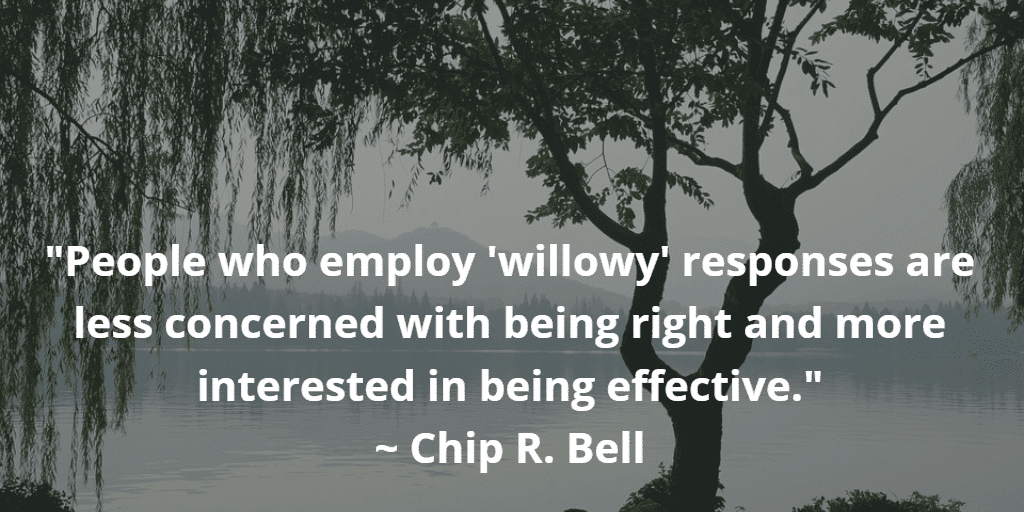The straight-line winds came through the area at 60 miles per hour. Giant pines, maples and pin oaks came crashing to the ground. But, all the tall willow trees remained standing.
It was my neighbor’s nearby property in the mountains of North Georgia. Our property sits in a valley on the river bank so it was spared the destruction. I wondered about the willow’s story, especially since they have shallow roots just like the trees that bit the dust.
Willow trees are, well, willowy. Instead of responding to nature with stern rigidity, they respond with elasticity and adaptability. People who employ willowy responses in customer service are less concerned with being right and more interested in being effective. They focus on problem-solving and not on rule-reading. When they encounter resistance, they learn and modify rather than challenge or concede. Force, like a straight-line wind, is an occasion for accommodation and not an opportunity to be Mr. or Ms. Rules ‘R Us.
I was teaching a hospitality workshop with a segment on trustworthiness. The exercise called for participants to identify half-truths they told guests and then identify ways these white lies could be adjusted to be more trustworthy. How many menus have you seen with rules like “no substitutions” when you know there are ways to get that rule altered?
This was not an exercise in being rebellious or disregarding the requirements of the organization. It was a chance to become a willow and not a pin oak. “We are delighted to allow substitutions. We want you to get what you desire. However, there will be an upcharge.”
We witness a win-win approach too rarely in customer service today.
Organizations, in their quest to trim costs, too often hire people at low wages who have limited experience and receive little training. Armed with rules to enforce and tasks to perform they are then placed in customer-facing roles. When straight-line exceptions blow their way, they sternly defend and the customer relationship comes crashing down.
Look for ways to help your employees focus on helping customers win while respecting the needs of the organization they front through problem-solving instead of protecting. Help your employees think more like owners in their customer service, and not like prison guards.
For more about the value of frontline employees to your business, see this September 2015 blog post: Do your employees love your brand?
Image credit: 3dman_eu at Pixabay.
